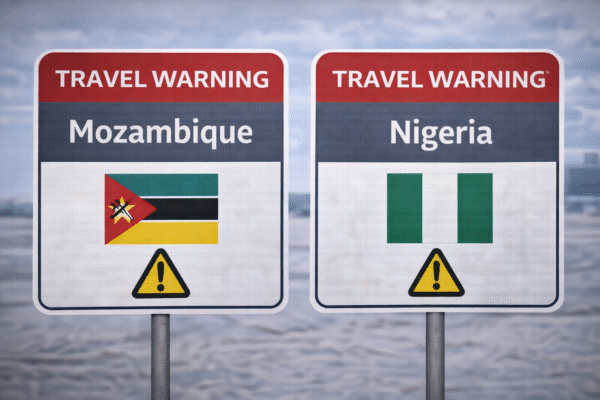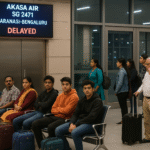South Korea is preparing for a record-breaking year in tourism, with millions of international travelers expected to visit Seoul, Busan, Jeju, and other cultural hotspots. Yet, this surge in arrivals coincides with sweeping changes to the short-term rental market, creating concern among many visitors—particularly those from Taiwan.
Starting October 16, 2025, Airbnb will block all listings that have not completed official business registrations with South Korean authorities. This decision, made to align with national laws, could eliminate tens of thousands of accommodations currently available on the platform. For Taiwanese tourists, who make up one of the country’s most active visitor groups, the changes raise questions about whether their bookings will remain valid.
Why Taiwanese Tourists Are Especially Concerned
In recent months, Taiwanese travel forums and social media groups have seen a surge in anxious posts. Many travelers are questioning whether the guesthouses or apartments they’ve reserved will still be legal by the time they arrive.
Guesthouse owners in Seoul, overwhelmed by inquiries, report receiving daily requests for proof of compliance. One owner noted that Taiwanese visitors have been the most proactive in demanding evidence of registration, reflecting a heightened sense of caution after local media in Taiwan widely covered the policy shift.
This level of scrutiny stems from the scale of the crackdown. Of the roughly 72,400 Airbnb listings in South Korea in late 2024, fewer than 7,500 were officially registered. That means close to 80% of the properties could face removal unless they secure legal permits.
The Details of Airbnb’s New Policy
Airbnb’s new rules follow the South Korean government’s ongoing efforts to regulate the short-term rental sector, which has long operated in a gray area. Apartments and officetels (mixed-use commercial units) have been widely marketed on platforms like Airbnb but often lacked legal authorization for tourist stays.
To close this gap, Airbnb has committed to removing all unregistered properties by 2026, with the first major cut happening in October 2025. This step ensures greater transparency for travelers but poses a short-term disruption for those relying on Airbnb as a convenient and affordable accommodation option.
The Broader Impact on South Korea’s Tourism Market
The crackdown has far-reaching implications for South Korea’s tourism economy. Seoul, the country’s most popular destination, is home to the largest concentration of short-term rentals. If most of these are removed, the city could face a shortage of budget-friendly options during peak seasons.
This shortage is particularly concerning during high-demand events such as the Seoul Lantern Festival, K-pop concerts, and international conferences. Hotels may struggle to absorb the sudden influx of guests who lose their Airbnb reservations, potentially driving prices higher and creating accessibility issues for budget-conscious travelers.
While large hotels and established guesthouses will benefit from reduced competition, smaller independent operators may find the transition challenging. Industry analysts warn that the sudden loss of inventory could temporarily dent the country’s reputation for tourist-friendly hospitality.
Why Regulations Have Been Inconsistent
Part of the problem lies in the fragmented nature of South Korea’s short-term rental regulations. Oversight is spread across multiple ministries and varies by region, with rural areas often facing looser enforcement than major cities like Seoul.
Crackdowns have historically been sporadic, allowing illegal rentals to thrive. Enforcement has ramped up in recent years, but the lack of consistency has left both hosts and travelers confused about what is legal. The Airbnb deadline represents the government’s most decisive action yet to standardize the system nationwide.
Experts argue that while this move will eventually improve market transparency, the immediate uncertainty has damaged confidence, particularly among foreign visitors who depend on platforms like Airbnb for straightforward booking options.
Advice for Taiwanese Travelers
For Taiwanese tourists planning trips to South Korea, preparation will be key in the months ahead. Travel experts recommend several steps to avoid disruptions:
- Verify with Hosts: Contact your Airbnb host directly and request proof of business registration or a license number.
- Check Alternatives: Explore official hotel websites and registered guesthouses, especially in Seoul, where demand will remain high.
- Stay Informed: Monitor Taiwanese travel forums and government advisories for the latest updates on the policy’s impact.
- Plan Ahead for Peak Seasons: With fewer listings available, early booking will be essential to secure affordable accommodation.
By taking these steps, travelers can reduce the risk of arriving in South Korea only to find their booking canceled or invalid.
A Necessary Shift for the Future
Despite the anxiety it has caused, the crackdown is ultimately intended to improve South Korea’s tourism environment. By ensuring that all short-term rentals are legal, the government aims to protect travelers from unsafe or fraudulent accommodations. For the long term, this will create a more reliable and transparent system that benefits both visitors and compliant hosts.
For Taiwanese travelers, the adjustment period may feel uncertain, but once the new system is fully implemented, it is expected to provide greater peace of mind. With registered properties, tourists can be confident that their accommodations meet local standards and safety requirements.
Conclusion: A Turning Point in South Korea’s Rental Market
South Korea’s decision to enforce strict compliance in the short-term rental sector marks a turning point for the country’s tourism industry. While the immediate consequences—such as reduced listings, higher prices, and traveler confusion—pose challenges, the long-term benefits include improved safety, legality, and trust in the accommodation market.
For Taiwanese travelers, the message is clear: verify your bookings, plan ahead, and stay informed. While the transition may be rocky, the changes aim to secure a stronger, more dependable hospitality sector that matches South Korea’s global reputation as a dynamic, modern travel destination.
For more travel news like this, keep reading Global Travel Wire



















